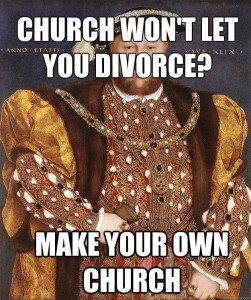Without further ado, we have arrived at my second official blog post! (The fact that we are already this far into the year is a little shocking…)
Today, I wanted to discuss Hobbes’ perspective regarding God, religion, and the legitimacy of sovereign power. As was custom at the time, Hobbes would have been a faithful man and a church-goer, as to not be one would essentially mean his exclusion from nearly all facets of life. He also does give his due respect to God as well as give numerous biblical references for his arguments (the appendix in the back gives a list of his mentions and references). But if he had “done his duty” as a Christian man, what was so contentious about his work that would have placed it under scrutiny for heresy?
One possibility might be that Hobbes, despite an exterior persona of being dogmatically correct, is actually anti-religious, and despises the church on the inside. The entirety of Ch. XII is devoted to the discussion of religion, and how most religions are invented by men as intellectual crutches, when they have need of an explanation regarding the causes of things (XII.2, 63). He also discusses man’s reliance on miracles for the sustenance of faith (XII.28, 72). However, when he seems to be pushing for the absurdity of religion, he also discusses God’s choice of the Israelites, who follow the “True Religion” and live in accordance with its correct laws (XII.22, 71). So, it seems to me that though he disparages religion in general, he still bears regard for the Judeo-Christian tradition.
If it’s not about the doctrine, then, it might be about the people. The conclusion Hobbes reaches at the end of that chapter is that he “may attribute all the changes of religion in the world to one and the same cause, and that is, unpleasing priests” (XII.32, 73-74). Well, then, his vendetta isn’t against God, but against God’s ordained representatives on earth, the clergy, who have (unlike the sovereign whom he espouses) undergone a specific training process to be able to represent God properly. That seems like a reasonable justification for him to be branded a heretic – turn your nose up to the people in charge, and watch them raise hell in your life (sorry, had to make the pun). Rising up against church authority actually seems like a very English thing to do, given the shining example of Henry VIII, who separated an entire nation from the Catholic Church in the 1530s just so he could divorce his wife, Anne Boleyn.
(I don’t know if memes work under copyright law, but I’ll just leave this here. The portrait itself is under Wikimedia Commons, so it should be fine???)
However, he also states that “to make covenant with God [Himself] is impossible” (XIV.23, 85). God must be have an earthly representative in order to be communicated with. Hobbes brings up the biblical examples of Moses, Jesus, and the Holy Spirit (the latter two of whom are actually God, but I won’t talk about that here) to show that this has happened without trouble in the past, because of the divine legitimacy of God’s chosen representatives (XVI.12, 103) – but what makes the appointed sovereign any better than a clergyman or a pope? Is it the fact that the multitude willingly transfers their rights to the entity whom they see fit (XVII,13, 109), rather than their being appointed as the pope is? Does this favour of the vox populi somehow mean that God, too, has chosen them? Then what makes the Stuart line any more legitimate as a monarchy, given that the only reason they held power was not because they were elected, but because they were related to the Virgin Queen who came before them? What does that say about Hobbes’ regard for the Stuarts – whether he actually liked them, or if he just wanted someone to call the shots and fill the position of power?
In my opinion, these are contentious points in Hobbes’ perspective that perhaps point to the political turbulence of his times and his potential desperation for strong government to reunite a battered country. Still, it would have taken a whole lot of desperation for a mind like his to forge an entire political theory around reinstating a potentially illegitimate power structure! And maybe he was really a church-man, through and through – or maybe he was just manipulating his biblical education to support his reasoning. We’ll never really know – but we can educatedly guess at it!
Thanks, folks.
